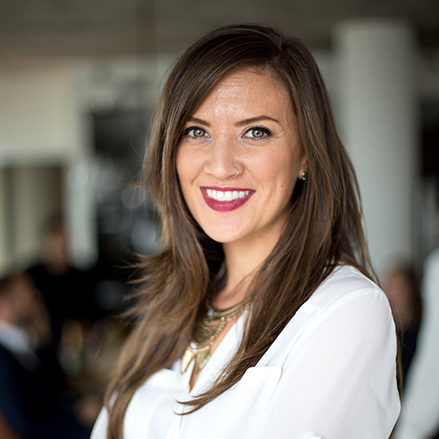I remember sitting in a Starbucks with my family in Halifax, Nova Scotia on December 14, 2012. Sandy Hook Elementary was the only thing on anyone’s mind and Pumped-Up Kicks was playing over the store’s speakers. Sometimes violence in music creates proximity to otherwise less accessible aspects of our shared humanity. Other times, it’s too close. An intuitive Starbucks employee turned off the song and left us with silence, which was loud and right.
I remember walking down a tree-lined street in Portland, Oregon, three days after I heard the name “Uvalde, Texas.” Three days after I started wondering if the heart of humanity had any blood left to bleed. The streets were damp and the scent of lilacs and early roses were like funeral singers. Parents were taking their kids to school.
The first and most appropriate reaction to human violence is to hear the deafening crack of our own hearts. The second is to wail. Dig our nails into the mud and cover ourselves with ashes. Gather the rage. Let it wreak havoc until our lungs ache and our throats are raw. And when the voices say, “Get up! Do something!” – stay.
I find it difficult to stay. I find it counter-intuitive to feel the feelings, and to sit with the pain. I am a strategist. I make plans. I fix things. I do not understand, from a logical perspective, the necessity of pain. “I can fix it,” is what I tell myself because….how else will we survive? If I can’t come up with a plan, I and everyone I love will break under the pressure.
As if I am the first to make a plan? As if I am the first to consider that “someone’s got to do something”? Yes, we need gun reform. Yes, we need structural support for the places our children are formed – homes, neighborhood, schools. Yes, we need a massive healthcare overhaul. Yes, we need leaders who acknowledge and act on their power. Yes, we need to organize. Everyone from Bob Dylan to Stacy Abrams to Bernie Sanders to you, my social media feed, says the same thing.
But here’s one thing pain and science will teach us: Trauma begets trauma. Every generation (subconsciously) carries forward the habits, beliefs, biases, and behaviors of those who came before. And every individual in every generation is born with hard work to do. If we want to participate in the survival of our species, we must look inward. And so, we stay.
Do you know why the Voting Rights Act passed in 1965? Do you think it passed because Martin Luther King Jr.’s speeches finally moved the hearts of lawmakers? Or because the bloodshed in Selma on Sunday, March 7 motivated then-President Lyndon Johnson to implement a sweeping change? No, it passed at that particular time because Bloody Sunday was filmed. And on the very same evening, it interrupted the nationwide broadcast of “Judgment at Nuremberg”, a widely-anticipated, star-studded movie that explored Nazi bigotry, war crimes and the moral culpability of those who followed orders and didn’t speak out against the Holocaust. “The juxtaposition struck like psychological lightning in American homes,” wrote Gene Roberts and Hank Klibanoff in The Race Beat. The nation rose up as one galvanized force, Johnson feared for the future of his political career, and Congress passed the law.
No amount of strategic planning could have predicted this impact. No set of lead indicators could have manufactured this confluence of events. If you dig a little, you’ll find layers of complicated, complex, psychological threads that wove this tapestry. For example, at a protest weeks earlier, Life photographer Flip Schulke ditched his camera to help protesters who had been knocked to the ground. King publicly criticized the photographer’s actions, saying, “The world doesn’t know this happened because you didn’t photograph it.” As a result, Selma was not only photographed, but filmed.
Years earlier, Abby Mann, the son of Russian-Jewish immigrants, worked through his family’s trauma as he wrote the screenplay for “Judgment at Nuremberg.” His obsession with meticulous research earned him a reputation that had Hollywood actors lining up to work with him. One of the main actors worked only for expenses, such was his desire to tell Mann’s interpretation of the story of Nuremberg. Layer upon complicated layer and event upon unpredictable event all led to the day that a march and a movie collided and changed the world.
Every individual in every generation is born with hard work to do, which starts with and is sustained by looking inward. MLK and Abby Mann contributed together to a policy change that massively decreased the disparity between black and white voters – but they had no way of knowing their individual work would coincide to achieve such significant impact. They just did the work. They gathered up the pain around them, the trauma of generations, and they felt it – the pain, the anger, and the grief. They did the work. Again and again.
“Due to my involvement in the struggle for the freedom of my people, I have known very few quiet days in the last few years. I have been arrested five times and put in Alabama jails. My home has been bombed twice. A day seldom passes that my family and I are not the recipients of threats of death. I have been the victim of a near fatal stabbing. So in a real sense I have been battered by the storms of persecution. I must admit that at times I have felt that I could no longer bear such a heavy burden, and have been tempted to retreat to a more quiet and serene life. But every time such a temptation appeared, something came to strengthen and sustain my determination.
My personal trials have taught me the value of unmerited suffering.”
– Martin Luther King, Jr. from Suffering and Faith
You may be wondering, “What’s my role? What can I do?”
Do the thing you know to do – the only thing you can control – which is the inner work, the most difficult work. None of us can fold or shape the universe into what we think it should be, but that’s not our responsibility anyway. Our responsibility is to get angry enough, sad enough, dissatisfied enough, and hopeless enough to turn and face the tumult in our own souls. When we do the work of looking inward, we become people porous enough to recognize our purpose when it presents itself.
So, on this Juneteenth, in the aftermath of a global pandemic, police killings, and school shootings – stay. Even when the world around you says, “Get up! Do something!” – be with the wisdom of a broken heart. Learn from the intelligence of rage. Let it shape you into someone loud. Threaten the systems that profit the oppressors. While it may feel counterintuitive in a productivity-driven society, doing our own inner work is how we each, individually, contribute to something greater than our strategic plans and impact metrics can predict.






